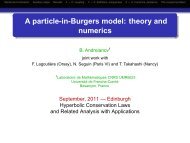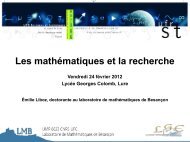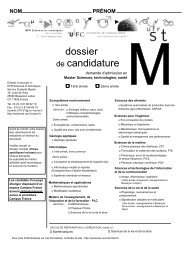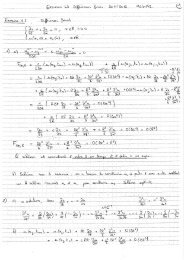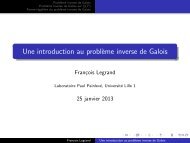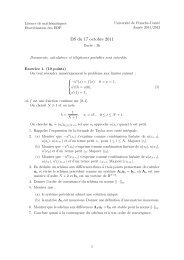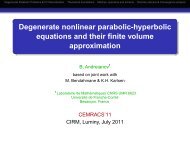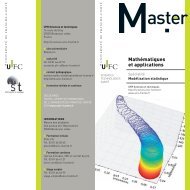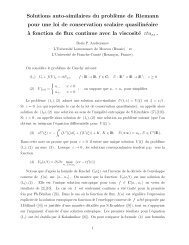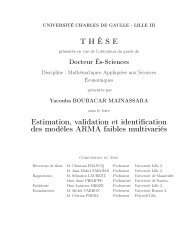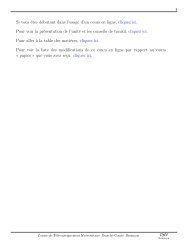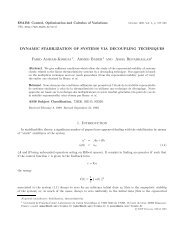Generalizing the Bardos-LeRoux-Nédélec boundary condition for ...
Generalizing the Bardos-LeRoux-Nédélec boundary condition for ...
Generalizing the Bardos-LeRoux-Nédélec boundary condition for ...
Create successful ePaper yourself
Turn your PDF publications into a flip-book with our unique Google optimized e-Paper software.
The problem BLN <strong>condition</strong> & Alternatives Effective BC graph Definition Uniqueness Definition Bis Existence & Convergence of Approximations<br />
Equivalent definition of solution<br />
Proposition (Entropy solution)<br />
Let u ∈ L ∞ . The assertions (i),(ii) are equivalent :<br />
(i) (“def. with traces”) u is an entropy solution in <strong>the</strong> above sense<br />
(ii) (“def. a-la Carrillo” + technicalities ) The function u verifies:<br />
∀k ∈ R ∀ξ ∈ D([0, T ) × Ω) +<br />
T<br />
<br />
± ± <br />
−(u − k) ξt − q (u, k) · ∇ξ − (u0 − k)<br />
0 Ω<br />
Ω<br />
± ξ(0, ·)<br />
<br />
≤ Ck∧ β(t,x)(k) − ϕν(x)(k) ∓ ξ(t, x).<br />
Σ<br />
Here, Ck is a constant that depends on u∞ and on k .<br />
And if <strong>the</strong> sets Σ ± (k) := {(t, x) ∈ Σ | k ∈ K±(t, x)} are “regular enough”<br />
<strong>the</strong>n (i),(ii) are also equivalent to<br />
(ii’) (“def. a-la Carrillo”) The function u verifies<br />
T<br />
0<br />
∀k ∈ R ∀ξ ∈ D([0, T ) × Ω) + such that ξ| Σ\Σ ± (k) = 0<br />
<br />
<br />
Ω<br />
−(u − k) ± ξt − q ± (u, k) · ∇ξ −<br />
(u0 − k)<br />
Ω<br />
± ξ(0, ·) ≤ 0.



